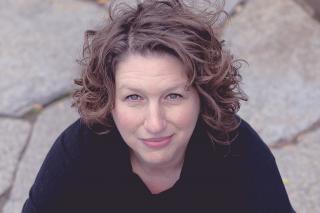Jessica Halem ’16MBA shares her work with the Sexual and Gender Minorities Health Equity Initiative.
Can you tell us about your role at Harvard Medical School?
Harvard Medical School (HMS) sits uniquely at the intersection of higher education, healthcare policy, and multiple teaching hospitals and institutes. When the Dean created a role for tackling LGBTQ issues, it meant a once-in-a-lifetime opportunity to influence all of these areas with my special mix of optimism, advocacy, and training. I started this first-of-its-kind role almost five years ago when I was getting my MBA at Simmons. I approached the position like a consultant: diagnosing, interviewing, and uncovering. I then developed a strategy and went to work. I’m so pleased to say we already have achieved so many successes!
Can you tell us about the Sexual and Gender Minorities Health Equity Initiative?
After years of work toward changing the culture and climate for LGBTQ staff, faculty and students at HMS, we were finally primed to tackle the greatest challenge — the curriculum. Medicine is unlike any other industry where I’ve worked. I bring fresh eyes and years of experience advocating for LGBTQ people whose healthcare needs frequently go unmet. Working with a very generous donor, we will be able to revise our curriculum to incorporate the latest findings in LGBTQ health generally and to improve transgender medicine in particular. Every student who studies here will be equipped to care for LGBTQ patients who may be wary in seeking help because of prior mistreatment by the medical system. Because we have financial support, we can replicate our curriculum and bring it to other medical schools across the country — maybe even around the world.
What do you see as the next step for this education to reach a broader audience?
I am very excited about what comes next. We will work closely with Deans and faculty at other medical schools to improve their knowledge and aptitude for working with sexual and gender minorities — as patients, students, and faculty. We will help them understand the importance of this work. I do not envision a top-down model where we deliver a big book of answers, but rather, we will listen and learn about how their school works, helping them integrate this curriculum in their own unique way. I can’t wait to learn from medical schools in different parts of the country and help them find their own path. I have found the greatest impact in this work — and all the equity work I’ve done — comes from one-on-one relationships and coaching people through challenges and difficult moments.
What Simmons professors had an impact on your career?
I’m forever grateful to Professor Stacy Blake-Beard for being so open and supportive of me. I dived into her research and found so much inspiration. She helped provide language and frameworks for organizational change that I learned to apply to my work. Graduate school never ends if you stay open and want to be a lifelong learner. I continue to lean on Associate Professor Spela Trefalt and Professor of Practice Cynthia Ingols for their mentoring and advice. I will tell you a secret — my office is just down the street from Simmons so I get to come back regularly for coffee dates and lunch talks.
Any advice for current students?
Do the hard work of thinking critically, engaging in difficult conversations, and being a leader of people with bold ideas. With leadership comes the responsibility to self-reflect and be honest about your style, challenges and how others receive you. Remember, if people aren’t inspired to follow you, you can’t be an effective leader! Figure out your style and cultivate it. Heal your hurts. Ask for feedback and listen with an open heart. Be gentle with yourself and with others. This is a long road — a lifetime of work to do — none of it will be fast or easy. It if was easy, it would be done by now.

